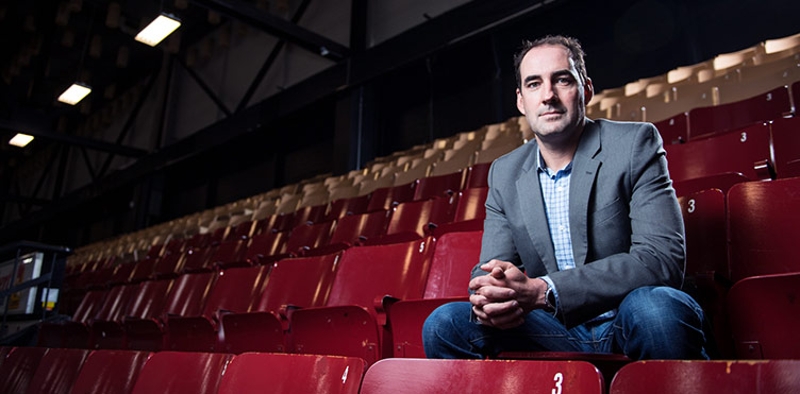UNB mental performance coach says to choose 3 things each day
Author: UNB Alumni
Posted on Jun 30, 2020
Category: Insights , Kinesiology , Arts

Ryan Hamilton (BA'00, MScExSS'03, PhD'11) spends the bulk of his time teaching psychology at UNB Fredericton, but he’s also a mental performance coach, having worked with Canada's junior men's hockey team and as an advisor to an NHL franchise. He’s a sport psychology consultant to the UNB Reds, and is also with the Canadian Sport Centre in NB, offering mental performance coaching to both elite athletes across Canada and young athletes in the Maritimes who are coping with uncertainty during the COVID-19 pandemic.
Ryan’s seen first-hand how mental fitness plays a role in high performance, and he says that now is an especially important time to draw on your psychological skill set – whether you’re an athlete or not.
“As our physical activity is constrained because we’re spending much more time at home, with that comes an uncertainty and anxiety,” he explains. “A lot of people can’t understand why their mood is off, since they have more "down time” right now. But they don’t realize that by missing out on even a basic amount of normal daily activity – walking to your building at work, doing errands and going to the gym – affects our mental state. Physical activity is so helpful in combating anxiety, depression and boosting overall mood. It’s not just about being proud of yourself for being active. Our bodies are meant to move.”
Ryan says that it’s important to schedule movement into our daily routines at home. “Keep taking quick breaks from the computer to get outside and move around a bit. Even small walks to the mailbox or around the block are helpful.”
He also advises not to focus so much on the constraint we’re experiencing that we miss out on the opportunities it provides. “Yes, it’s unfortunate that athletes can’t compete right now, but they have the opportunity to rehab their injuries, work on flexibility and practice technical skills they may not otherwise have time for. Everyone at home can look for opportunities that exist to stay healthy, like walking outdoors, trying new recipes and building new skills. “Yes, things are different but most of what matters is still the same – connection with friends and family, being productive, being creative and solving problems. It may be in a different environment and require a different approach, but they’re the same things.”
He also feels that as we emerge out of lockdown, there’s a pressure to “win the pandemic” – a need to make sure we’re ultra-productive. “We may be having a day when we feel zero motivation, and we see social media posts from others about how productive they’re being, and we can feel a kind of productivity guilt,” he says. “It’s important to remember that we’re going to have some good days and some not so good days where we’ll struggle to be productive. That’s ok.”
He offers a bit of insight into how to deal with this – and to keep active even on unproductive days:
“Try to choose three small things every day in service of what you value. For instance, you may choose one activity or action that gives you a sense of achievement, one that makes you feel healthy, and one that makes you feel connected to others. Even if you don’t manage much else for the rest of that day, you can feel good knowing you did these three things.”